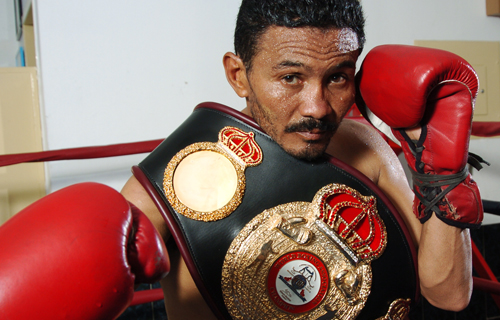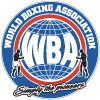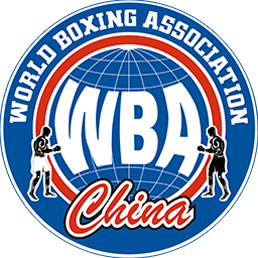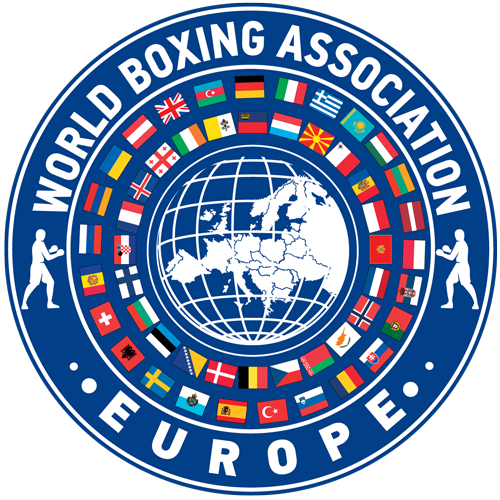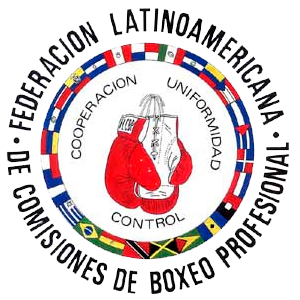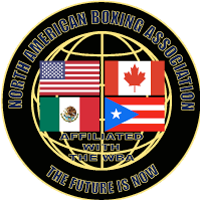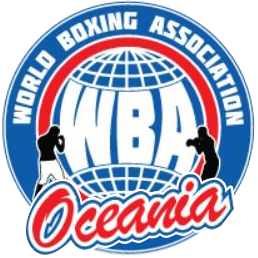The name of Leo Gamez is known because he has been world champion four times in four different divisions all in the World Boxing Association. He ruled in Minimum weight, Light Flyweight, Flyweight and Super Flyweight division.
Silvio Rafael Gamez Leo was born on August 8, 1963 in Guarico state in the plains of Venezuela.
He became professional on February 14, 1985 and started with 20 consecutive victories, including his first title and defense.
On January 10, 1988, Leo fought out of his country for the first time, for the vacant minimum weight, he defeated Bong-Jun Kim unanimously in Korea.
Four months later Gamez defended his title for the first time in Japan against Kenji Yokozawa to defeat him by TKO in 3 rounds. However, Gamez suffered fracture an arm in the fight forced him to relinquish the title and take a long rest.
He came back in October 1989, and won two fights that led him to his next shot to the title, this time in the Light Flyweight division against Myung Woo Yuh, on April 29, 1990 in Korea, where he lost in a controversial decision.
The WBA ordered a direct rematch that took place on November 10. Yuh defeated him again by Unanimous Decision, thus retaining his title.
This forced Gamez stay away from the gym for a year, to come back and challenge WBA champion Kang Yong Kim whom he fought on November 5, 1991, but he was defeated again.
Two years later, he fought Shiro Yahiro and defeated him by KO 9, on October 21 at Korakuen Hall in Tokyo to win his second title.
Gamez defended his title three times in 1994, and lost it by decision on February 4, 1995, when he fought Hi-Yong Choi, in Korea.
On March 24, 1996 Gamez tried to join the elite group of champions with three titles in three different divisions, fighting Saen Sor Ploenchit in Thailand, but lost by Split Decision. However, he conquered his goal on March 13, 1999 when the knocked out Hugo Soto, in the Madison Square Garden, in USA.
After this victory, Gamez received a hero welcome upon his arrival at Simon Bolivar International Airport, Maiquetia, Venezuela.
In May 1999 Gamez defeated Josue Camacho and won the WBA Interim title. On September 3, Gamez fights Sornpichai Kratingdaengym and loses by KO.
Gamez gets a fourth WBA title shot and won the Super Flyweight title knocking out Hideki Todaka, on October 9, 2000.
That day Gamez he entered into another elite group of world Champions winners in four different divisions, and the first Venezuelan to achieve that goal. He lost the crown in his first defense on March 11 in Yokohama, Japan against Celes Kobayashi.
Gamez fought Johnny Bredahl on November 8, 2002 in Copenhagen, Denmark in trying to win five titles in five different divisions but lost in his attempt.
Gamez fought 4 more times but only won 1 of them, and took the decision to retire with a record of 35 victories, 26 by KO, 12 defeats and 1 draw in 20 years.
 El nombre del guariqueño Leo Gámez es conocido por ser ex campeón mundial de cuatro categorías diferentes. Reinó entre los mínimo, minimosca, mosca y supermosca de la Asociación Mundial de Boxeo.
El nombre del guariqueño Leo Gámez es conocido por ser ex campeón mundial de cuatro categorías diferentes. Reinó entre los mínimo, minimosca, mosca y supermosca de la Asociación Mundial de Boxeo.
Nació en el llano venezolano, en el Estado Guárico, el 8 de agosto de 1963, bajo el nombre de Silvio Rafael Gamez Leo.
Saltó al profesional el 14 de febrero de 1985, y extendió su seguidilla de triunfos hasta 20, incluyendo su primer cinturón y defensa. El 10 de enero de 1988, Gámez disputó su primera refriega en el extranjero, y la corona mínima de la AMB que se encontraba vacante. La pelea fue en Corea del Sur, con Bong-Jun Kim a quien venció por decisión unánime.
Cuatro meses después defendía, en Japón, frente al local Kenji Yokozawa a quien dominó por nocaut técnico, en el tercer asalto. Gámez sufrió una fractura en el brazo, lo que lo obligó a abandonar el título, y tomar un largo descanso.
Reapareció en octubre de 1989, y conquistó dos triunfos que lo dejaron a las puertas de un nuevo chance mundial, esta vez en el peso minimosca. El 29 de abril de 1990, se enfrentó con el campeón del momento Myung-Woo Yuh, en Corea del Sur y perdió en una controversial decisión.
La AMB ordenó una revancha inmediata; y el 10 de noviembre de ese mismo año, volvió a pelear con Woo Yu, quien una vez más ganó por decisión en doce asaltos para retener el título mundial.
Esto hizo que el guariqueño Gámez se alejara por un año del gimnasio, y regresara con la idea de buscar un cinturón de la AMB. Regresó a Corea del Sur, y retó al campeón de Kang Yong-Kim el 5 de noviembre de 1991, pero volvió con la derrota.
Dos años después, Shiro Yahiro, fue su rival en Tokio. Se enfrentaron el 21 de octubre en el Korakuen Hall de Tokio. El venezolano venció por nocaut técnico en el noveno asalto, y se tituló por segunda vez.
Gámez hizo tres defensas de su cinturón en el año 1994, y retuvo su faja hasta el cuatro de febrero de 1995, cuando se encaró con Hi-Yong Choi, en Corea del Sur; quien lo derrotó por las tarjetas.
Tuvo su oportunidad de unirse al selecto grupo de campeones en tres divisiones distintas, cuando se midió el 24 de marzo de 1996, contra el tailandés Saen Sor Ploenchit en Tailandia. Gámez cayó por decisión dividida en doce asaltos.
Pero consiguió su propósito el 13 de marzo de 1999, cuando noqueó al argentino Hugo Soto, en el tercer round de la pelea escenificada en el Madison Square Garden, en los Estados Unidos.
Después de esta victoria, Gámez recibió una bienvenida de héroe en el Aeropuerto Internacional Simón Bolívar, de Maiquetía, Venezuela.
En mayo de 1999 Gámez gana el título interino AMB, al noquear a Josue Camacho, en Puerto Rico. El 3 de septiembre Leo Gámez pelea con Sornpichai Kratingdaengym y pierde por nocaut en ocho rounds.
Gámez recibió la cuarta oportunidad en la AMB, esta vez en el peso súper mosca, ante el campeón oficial, Hideki Todaka, el 9 de octubre, 2000. El venezolano fulminó al japonés en el séptimo asalto en Nagoya.
Ese día, Gámez hizo historia al entrar a una élite de ganadores de títulos mundiales en cuatro divisiones diferentes, y ser a la el primer venezolano en ese grupo. Sin embargo, en su primera defensa, el 11 de marzo de 2001 en Yokohama, Japón, perdió la corona por nocaut frente a Celes Kobayashi. Después de una victoria más, Gámez intentó unirse a los combatientes en ganar títulos en cinco divisiones diferentes pero perdió ante el campeón de peso gallo de la AMB, Johnny Bredahl por decisión, el 8 de noviembre de 2002, en Copenhague, Dinamarca.
Cuatro peleas más, tres de ellas perdidas; obligó al venezolano a tomar la decisión de retirarse dejando su record en 35 victorias, 26 por nocauts; con 12 derrotas y 1 empate en 20 años de carrera.


